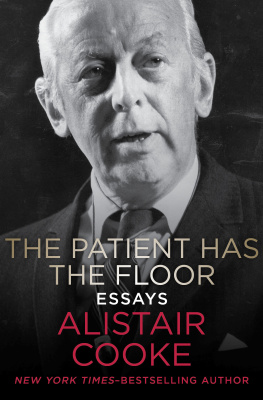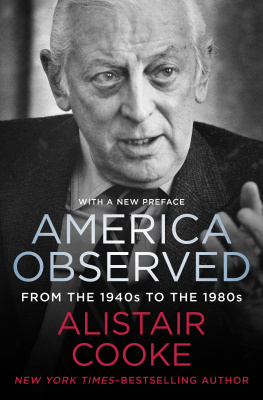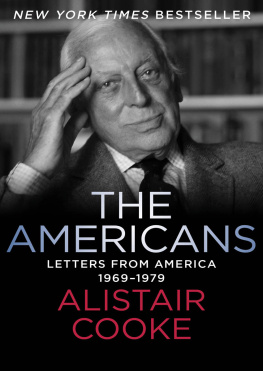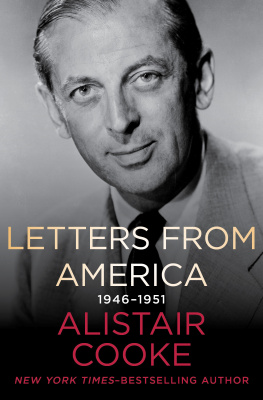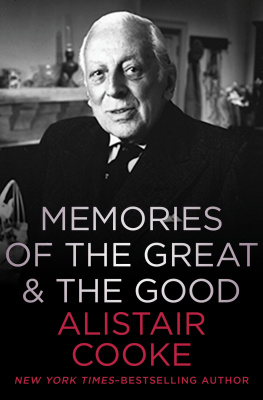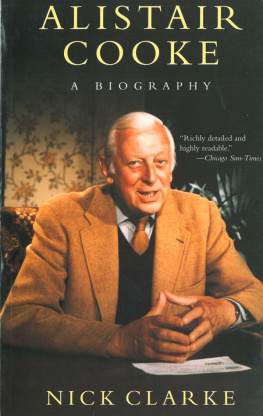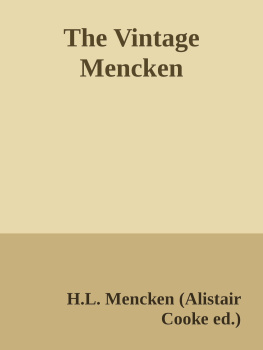
ALISTAIR COOKE
FROM OPEN ROAD MEDIA
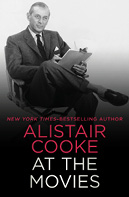
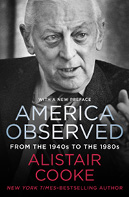
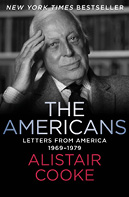

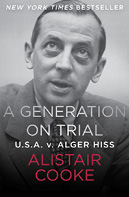
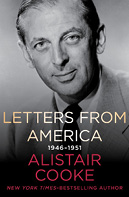
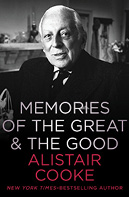
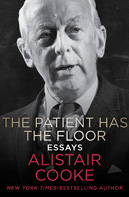
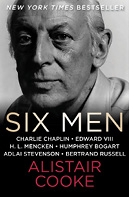
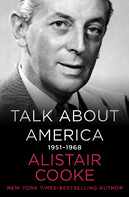


Find a full list of our authors and
titles at www.openroadmedia.com
FOLLOW US
@OpenRoadMedia




The Patient Has the Floor
Essays
Alistair Cooke

To
Dr Robert Woods Brown
for encouragement and
friendship
The Rede Lecture is probably the oldest public lecture in continuous existence. Sir Robert Rede, who became Chief Justice of the Common Pleas in 1506, founded three public lectures in Cambridge. In 1858, the endowment was reorganized to provide for one annual lecture to be delivered by a man of eminence in science or literature. In modern times, the lecturers have included Max Beerbohm, Andr Maurois, P.M.S. Blackett, Kenneth Clark, Herbert Butterfield, and C.P. Snow, whose lecture on The Two Cultures and the Scientific Revolution became a topic of national controversy.
About the Author
Alistair Cooke, KBE (19082004), was a legendary British American journalist, television host, and radio broadcaster. He was born in Lancashire, England, and after graduating from the University of Cambridge, was hired as a journalist for the BBC. He rose to prominence for his London Letter reports, broadcast on NBC Radio in America during the 1930s. Cooke immigrated to the United States in 1937. In 1946, he began a tradition that would last nearly six decadeshis Letter from America radio appearances on the BBC. Cooke was also beloved as the host of PBSs Masterpiece Theatre for twenty-one years. He wrote many books, both collections of his Letters from America and other projects. After his death, the Fulbright Alistair Cooke Award in Journalism was established to support students from the United Kingdom seeking to study in the United States, and vice versa.
The Patient Has the Floor
Im sure that Dr Johnsonyour Dr Johnsongave me an unintended opening when he wrote to invite me to be your speaker and added, You may discuss any topic of your choice; although all of us in Rochester who are involved in this programme are primarily in some branch of medicine, we do not necessarily expect an address related to medicine. Any topic of broad general interest would be suitable.
This is, I imagine, the usual courtesy offered to pacify the fears of some statesman, lawyer or other grandee who never appears before a doctor except to have his chest tapped, his knees jerked, his tongue depressed, his innards photographed, his rectum proctoscoped and all his juices filtered, measured and pronounced upon. It is, though you may not know it, a permanently humiliating relationship: I mean the relationship between doctors and the rest of mankind. And it is because most people do not care to bring it up in public that I believe it might be useful for me to do so.
In fact, I think it is my duty as a journalist to speak for the patients to you. A journalist has always been the social link between the expert and the layman, between the public and the private man. At his worst he can become the publishers disciple, the politicians yes-man, the tycoons sycophant, the actors press agent. But at his best he reports the world not as it ought to be but as his eyes and ears tell him it is.
Because our only relation with our doctor occurs when we need him badly we must all, for our self-respect, adopt in a mild form the delusion which every young mother hugs to her person: the belief that her obstetrician is the only man who has ever safely delivered a baby.
So I speak up for the patient, because the patient, when you see him, is usually too terrified to speak up for himselfI mean too terrified to speak about doctors. The raw material rarely answers back, which is what makes laboratory research so satisfying. But if the Mediterranean fruit fly could talk it would doubtless acquaint the farmer with some of his misapprehensions. The dolphin, whose whistles and grunts constitute a pretty sophisticated language, is already beginning to make us look silly. It is just possible that the layman, the patient tottering wide-eyed into this strange jungle of viruses and cultures and men in white, may see a few simple things which you do not see.
May I give you an instance, which happened the only other time that I dared to appear, so to speak, as a lay preacher before the College of Cardinals?
A few years ago, I was invited to Boston to speak at the annual dinner of the Massachusetts Heart Fund. I was expected, as I understood it, to launch the drive and supply, if possible, a slogan. When I arrived I found, to my embarrassed astonishment, that all my dinner companions were eminent heart specialists, including Dr Paul Dudley White, whoyou may recallpreserved General Eisenhower.
My qualifications for addressing a distinguished body of heart surgeons and probers were hardly less pathetic than they are for facing you today, although my two closest friends at Yale were medical students who are now a surgeon and a psychiatrist of alarming distinction (whom I would still not trust to lance a boil or wipe a tear). I began to try and justify my being there by noting that a foreign correspondent is a man whose very employment requires him to keep up the bluff that he takes all knowledge for his province. So I shuffled in front of the doctors samples of their own jargon. I dont suppose I fooled any of the formidable men present. But even the most disinterested specialist in any country takes on the prejudices of his own land. And my own peculiar historythat of an Englishman born and bred, and an American tamed and naturalizedhad forced me by accident into a peculiar specialty of my own, which is the continuous observation of what is British about Britain and American about America.
Next page
